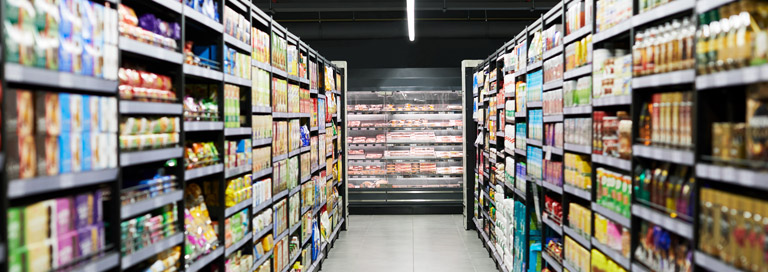I’m sure you’ve seen the red heart with a white check mark on the packaging of low-fat foods like cereal, bread, and crackers.
Using the term “heart-healthy” in the same sentence as these cheap high-carb products seems wrong.
But did you know that food manufacturers pay hundreds of thousands of dollars a year to get that “heart-healthy” checkmark on their products?
While the AHA insists the certification fee helps pay for research and ensure products fit their ” heart—healthy ” criteria, it means absolutely nothing.
You see, products without the heart and white check mark can have the same ingredients as those with the logo. The only difference is that some companies choose to fork over hundreds of thousands of dollars – while others don’t.
Worst of all, these foods aren’t heart-healthy at all.
And they’re making the problem worse. They cause inflammation, aggravate cardiovascular disease, and have added a constellation of other chronic illnesses to our modern health crisis.
Since healthy animal fats fell off the table and were replaced with the AHA’s low-fat alternative, new epidemics like obesity and diabetes have skyrocketed.
Meanwhile, heart disease has remained the number one cause of death in America and the world.
The truth is natural fats are good for you. If you want to live a long, healthy life, forget the modern recommendations to eat like a rabbit. Instead, eat MORE healthy fat.
Dietary fat is one of three primary macronutrients the human body needs to survive and thrive. Trying to remove it is a universally bad idea. Without healthy fats, your brain would be the size of a frog’s.
Here are just a few reasons why your body needs a regular intake of dietary fat:
-
- A source of energy: Your body uses fat to make energy. The calories you don’t use right away are stored for future use.
-
- Essential fatty acids: Your body can’t make them, but they are essential for growth, development, and cell functions.
-
- Proper functioning of nerves and brain: Your brain is about two-thirds fat, and your ability to think clearly depends on getting enough essential fats in your diet. Without enough fat, your nerves wouldn’t transmit signals efficiently.
-
- Protecting your heart: Essential fatty acids are the key to superior heart health. Your heart is also covered with a layer of “animal fat” that it uses as an energy booster during stress.
-
- Protecting your cells: The walls of every cell in your body are made up of fatty building blocks called lipids.
-
- Transporting fat-soluble vitamins: Fat delivers nutrients to your body. Fat-soluble vitamins A, D, E, K, and CoQ10 can’t be absorbed without fat.
-
- Forming steroid hormones: You need natural fats to make and transport steroid hormones like testosterone, estrogen, and progesterone.
Fat also keeps you lean. You see, healthy dietary fats produce zero insulin in your body. But low-fat foods are loaded with carbohydrates and sugar. These foods spike your blood glucose levels and cause your body to secrete waves of insulin.
This, in turn, triggers your liver to produce more triglycerides and body fat — putting you at risk for obesity, diabetes, heart disease, and other chronic ailments.
Get the Fats Your Heart Craves
I recommend eating as many different natural foods as possible to get the widest variety of healthy fats.
-
- Strike the right balance between omega-3s and omega-6 fatty acids. For most of human history, people consumed about a 2-to-1 ratio of omega-6 to omega-3 fats. But, over the last 75 years, that’s soared to over 20 to 1. This severe imbalance activates the COX-2 enzyme, which triggers inflammation and accelerates aging.1 Some of the best sources of omega-3s are grass-fed organ meats, wild-caught cold-water fish like tuna, herring, salmon, sardines, hempseeds, sacha inchi oil from Peru, and walnuts.
- Get at least 50% of your fat from saturated fats. Replace corn and canola oils with lard and coconut oil. Bring back the butter. Always choose whole-fat dairy foods. Look for a particular kind of saturated fat called stearic acid. You’ll find it in grass-fed beef, pastured pork, olive oil, chicken skin, and chocolate. Include egg yolks, cheese, heavy cream, and MCT oil.
- Stay away from man-made fats or trans fats. Trans fat is the result of “hydrogenation.” When a hydrogen molecule is added to vegetable oils, it turns them into fatty solids. These fatty solids replace animal fats. Your body doesn’t recognize them as food, and you never feel full when you eat them. A study in the journal Lancet analyzed fat found in the clogged arteries of people. Almost 75% of the fat turned out to be so-called “heart-healthy” fats found in margarine and canola oil.2
To Your Good Health,

Al Sears, MD, CNS
References:
1. Patterson E, et al. (2012, April 5). “Health implications of high dietary omega-6 polyunsaturated fatty acids.” J Nutr Metab. 2012; 2012: 539426.
2. Felton CV, et al. “Dietary polyunsaturated fatty acids and composition of human aortic plaques.” Lancet. 1994;344(8931):1195-1196.

